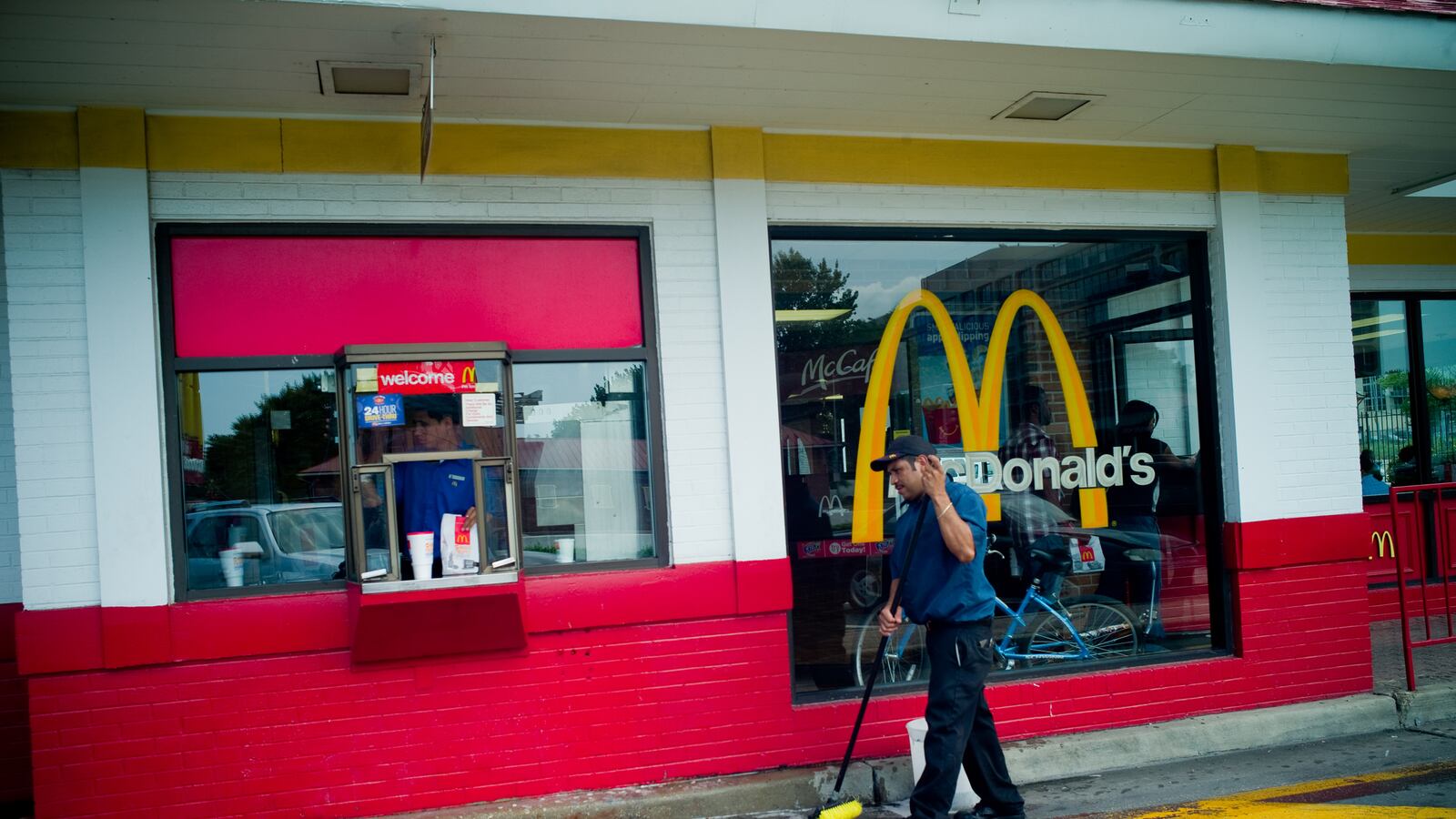The State of the Union did contain one surprise. President Obama’s call for an increase in the minimum wage from its present level of $7.25 per hour to $9 per hour was not among the proposals leaked to the press in advance of the speech. Republicans predictably rejected the call. But Obama and Democrats should press on. A higher minimum wage is good politics (polls generally show solid majorities support raising the minimum wage). And it’s better economics.

Here’s why.
The minimum wage, which was last increased in 2009, is already falling. Things get more expensive over time. Sure, some of the things that people who work for a living need to buy have gotten cheaper—telephones, air conditioners, computers. But the things that they spend the most on—health care, shelter, education—haven’t. The Bureau of Labor Statistics’ inflation calculator tells us that $7.25 in today’s dollars goes only as far as $6.77 did in 2009. In the U.S., we index government benefits to inflation. A portion of the proposed increase would thus be compensating for the continuing real decline in the minimum wage.
Wages don’t trickle down. They trickle up. In theory, boosting wages for CEOs might lead to their deputies and assistants getting paid more, and so on down the line. But that’s clearly not how it has worked over the last many years. Tim Noah of The New Republic cites a paper by income inequality expert Emmanuel Saez of the University of California, Berkeley. Saez notes that in 2010 and 2011, “the top 1 percent (which by 2011 meant any household making more than about $367,000) captured 121 percent of all pre-tax income gains.” In other words, we jacked up the wages of those at the very top, and everybody else’s wages effectively fell. The economy in the past few years has been like a pizzeria that sharply increased its output—but delivered all the extra pizzas it made to Park Avenue. Then, after the folks living there ate their fill, they went over to Lexington Avenue and Third Avenue and ate some of the pizza that had been delivered to their less wealthy neighbors.
By contrast, a minimum puts a floor under wages—for minimum-wage workers and for those who earn just above the minimum wage. And, as economists David Card and Alan Krueger demonstrated in a now iconic paper, it does so without hurting job creation.
Finally, it’s important for a nation to set high standards. Throughout history—whether it was the original minimum-wage law in 1938 (and every increase since), or the creation of Social Security, or restrictions on working hours, or mileage requirements, or pollution limits—those who believe they benefit from the existing system have reacted angrily to the imposition of higher standards. (For some good sport, go back and read all the apocalyptic stuff business types said about the Securities Exchange Commission and the Federal Deposit Insurance Corporation.) Every time government and advocates tell American capitalists to up their game, the response is “No, we can’t.” But, generally speaking, businesses scream and moan, react and innovate, and wind up in a better place.
Of course, labor is typically the biggest input for company. So it’s natural that businesses would exert maximum effort to control the cost of that input. And there’s no doubt that a higher minimum wage would create an immediate drag on earnings and create pressures for higher prices for companies that depend on low-paid workers. But many of these companies would also benefit. Lots of low-paying American companies, including some extremely large ones, make a good chunk of their money peddling goods and services to those on the lower rungs of the income ladder—Walmart and McDonald’s. But such firms have faced persistent difficulty boosting their top lines in the U.S. in recent years because their customers’ purchasing power has been eroding. Lower-income workers tend to spend almost everything they make, so more wages would very quickly translate into higher spending at a lot of businesses. That’s one of the reasons Walmart supported an increase in the minimum wage in 2009.






